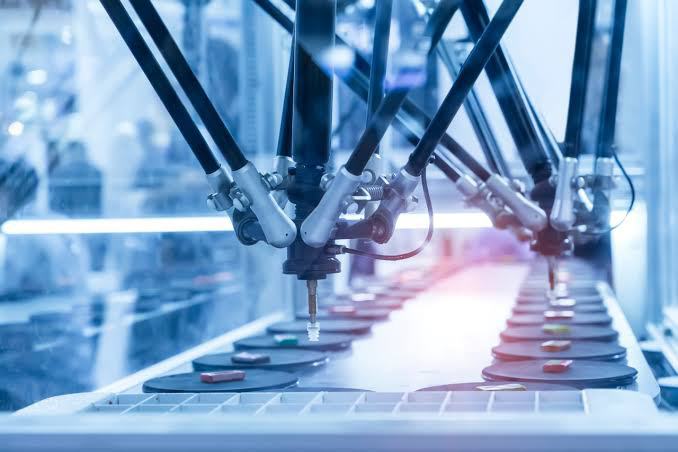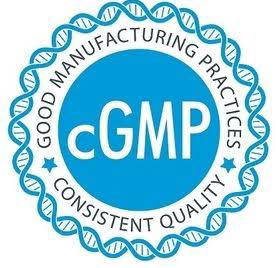Introduction:
The biopharmaceutical industry is at the forefront of medical advancements, pushing the boundaries of healthcare by leveraging cutting-edge technologies.
From novel drug discovery and development to advanced manufacturing techniques, biopharmaceutical companies are revolutionizing the way we approach disease treatment and prevention.
In this blog, we will delve into the current state of the industry, highlighting the latest technologies and the vast opportunities they present.
Next-Generation Sequencing (NGS) and Precision Medicine:
One of the most significant advancements in biopharmaceutical research is the integration of next-generation sequencing (NGS).
NGS enables scientists to rapidly sequence and analyze DNA, RNA, and proteins, providing valuable insights into genetic variations and disease mechanisms.
This technology has paved the way for precision medicine, where treatments can be tailored to an individual's unique genetic makeup.
The potential for targeted therapies and personalized medicine has opened up a realm of opportunities in the biopharmaceutical industry.
Artificial Intelligence (AI) and Machine Learning (ML):
AI and ML algorithms have gained tremendous traction in the biopharmaceutical sector.
These technologies are being used to streamline drug discovery processes, identify novel drug targets, and predict the efficacy of potential drug candidates.
AI-powered platforms can sift through vast amounts of data, including medical records, scientific literature, and genetic databases, to accelerate the identification and development of new therapies. Additionally, AI-driven algorithms can improve clinical trial design, patient recruitment, and monitoring, thereby optimizing the drug development process.
Gene and Cell Therapies:
Gene therapy and cell therapy have emerged as groundbreaking approaches in the biopharmaceutical field.
Gene therapy aims to treat diseases by introducing functional genes into the patient's cells, correcting genetic abnormalities.
Cell therapy involves the use of living cells, such as stem cells or immune cells, to repair, regenerate, or replace damaged tissues.
These innovative therapies have shown remarkable potential in treating previously untreatable conditions, offering new hope to patients and presenting exciting opportunities for biopharmaceutical companies.
Advanced Manufacturing Techniques:
The biopharmaceutical industry is witnessing significant advancements in manufacturing techniques, such as continuous manufacturing and 3D bioprinting.
Continuous manufacturing enables the production of pharmaceuticals in a continuous, uninterrupted process, improving efficiency and reducing costs. 3D bioprinting allows the creation of complex tissue structures, opening up possibilities for the development of organs for transplantation and in vitro drug testing.
These manufacturing innovations have the potential to revolutionize drug production and enhance accessibility to life-saving medications.
Digital Health and Wearable Devices:
The integration of digital health technologies and wearable devices is transforming healthcare delivery and patient monitoring.
These devices can collect real-time data, enabling remote patient monitoring, early disease detection, and personalized treatment plans.
In the biopharmaceutical industry, wearable devices are being used in clinical trials to gather objective data, enhance patient engagement, and improve medication adherence.
The wealth of data collected from these devices can also inform drug development processes, clinical decision-making, and post-market surveillance.
Conclusion:
The biopharmaceutical industry is experiencing a rapid transformation driven by technological advancements. Next-generation sequencing, AI and ML, gene and cell therapies, advanced manufacturing techniques, and digital health technologies are revolutionizing drug discovery, development, and patient care.
The opportunities presented by these technologies are vast, ranging from personalized medicine and breakthrough therapies to improved manufacturing processes and data-driven decision-making.
As the industry continues to evolve, embracing these technologies will be paramount for biopharmaceutical companies to stay competitive and make a lasting impact on global healthcare.
About the Author:
Dhansukh Viradiya is a highly accomplished expert in the pharmaceutical and biopharmaceutical industries. With over 10 years of experience in the field, he has gained comprehensive knowledge and expertise in various areas, including Process Validation, Cleaning Validation, Quality Management System, In-process quality assurance, Qualification etc.
Mr. Dhansukh holds a Master's degree in Pharmacy from a renowned University, where he specialized in Quality Assurance.
As a thought leader, Mr. Dhansukh has published numerous articles and white papers on various topics related to pharmaceutical and biopharmaceutical industries. His research work focuses on emerging trends, current regulatory expectations, advancements in technology, personalized medicine, and the intersection of healthcare and technology.
With his passion for improving patient care and dedication to advancing the field, Dhansukh Viradiya continues to make significant contributions to the pharmaceutical and biopharmaceutical industries. His insights and expertise make him a valuable resource in understanding the dynamic landscape of these sectors and their impact on global healthcare.
Disclaimer: The author's biography is provided for informational purposes only and does not imply any endorsement or affiliation with the article or its content.
Bye a latest value added products on Amazon by clicking on below link 💌














No comments:
Post a Comment